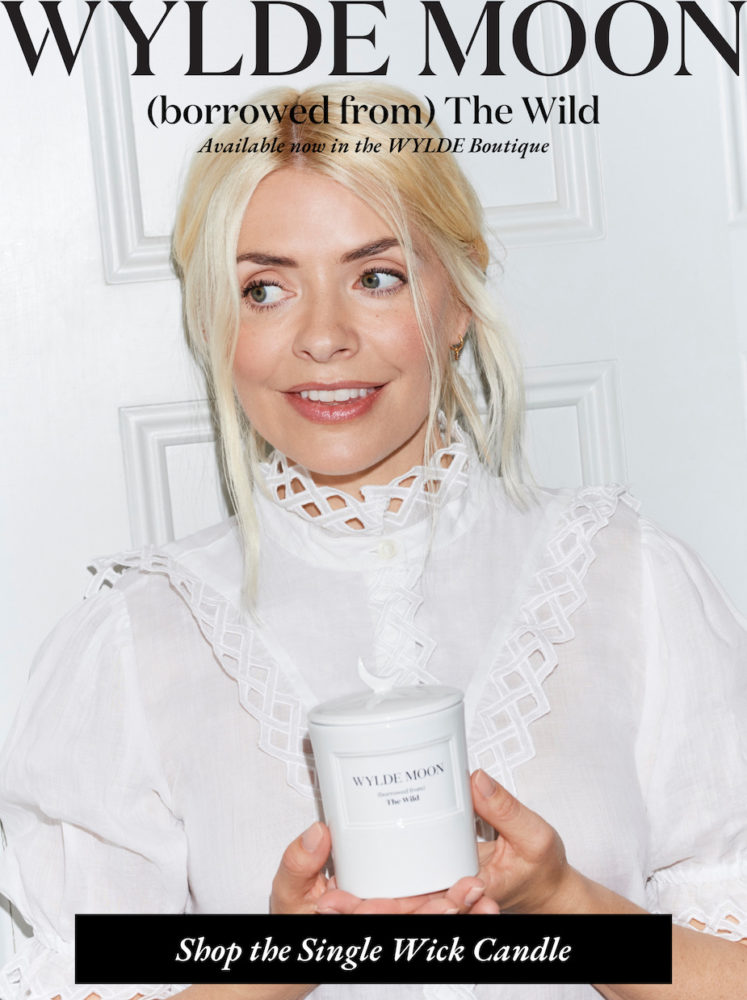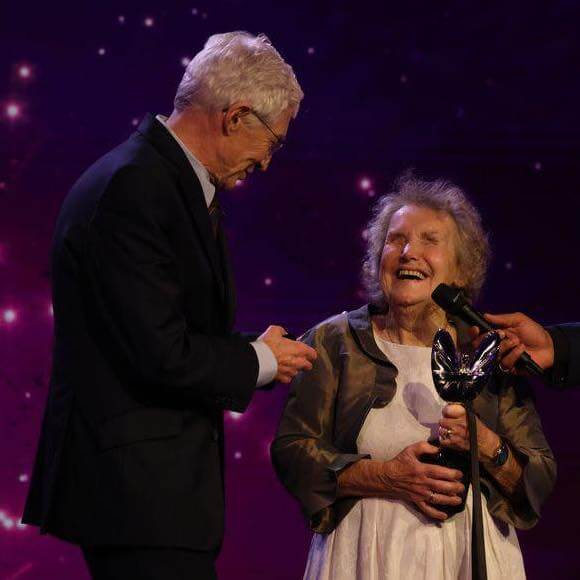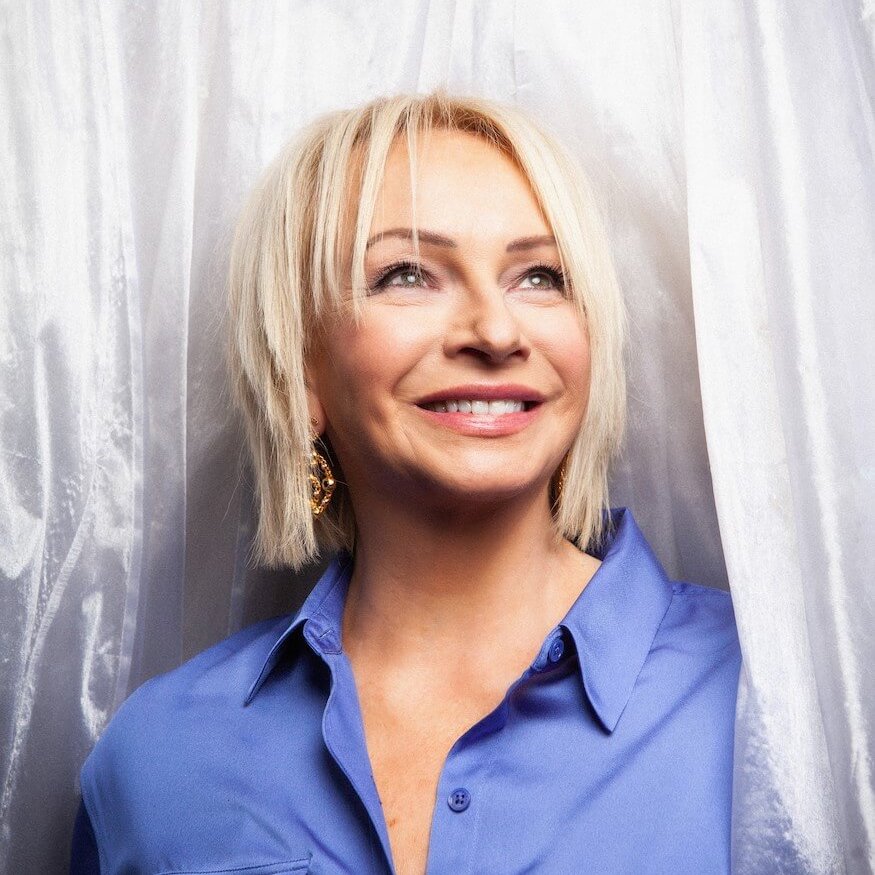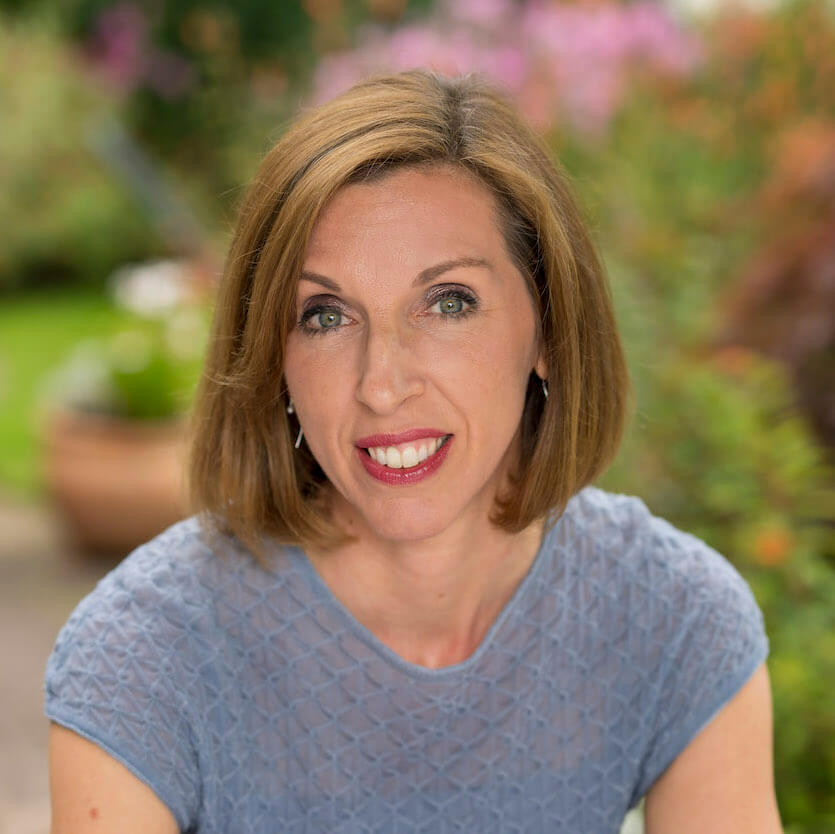5 Minute Read
Share this article…
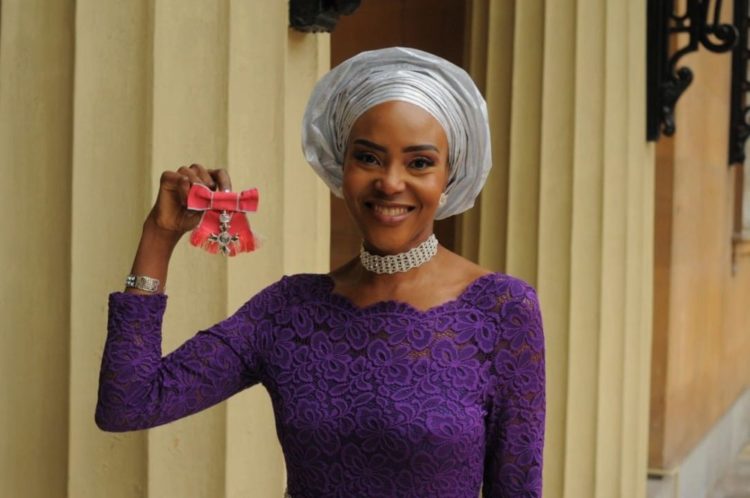
Dr Funke Abimbola MBE
“I saw a lot of women driven out of the workplace”
When Dr Funke Abimbola MBE saw mums denied equal opportunities at work, struggling to juggle their careers with their home-lives, she knew she had to fight for change.
Dr Funke Abimbola MBE is an award-winning campaigner for equality in every walk of life, and a true Wylde woman. She has personally been discriminated against for everything from her name, to her gender, to the colour of her skin. But when she saw the lost opportunities others faced as a result of their race, having the wrong accent, their sexuality and coming from poorer backgrounds, as well as the well-worn challenges of being a working mum, she knew she could not stand by and do nothing.
 Was your childhood one of privilege?
Was your childhood one of privilege?
“I was born into a privileged Nigerian family – my dad was incredibly sophisticated, going to medical school in Germany and speaking multiple languages. We would always have a lot of expats coming to our house in Lagos and I think it’s important to give that context because when I came to the UK, my perception of anyone who was white was that you were equally as privileged. The white people that I knew in Nigeria were all expatriates and on a tax-free bonus and the like. I was shocked to arrive in the UK – where I came to boarding school with my sister and brother – and see poverty.
I was very cocooned at my school in England, despite the fact that it was actually a very progressive one. So, it wasn’t until I started at university that my dual heritage became something that I was aware of and that I felt conflicted with. Because I wasn’t British-born, my story is completely different to a Nigerian who was born here, for example. I was also privately educated so I felt a bit of conflict there, too.”
 When did you discover life as a Nigerian woman was going to be tougher?
When did you discover life as a Nigerian woman was going to be tougher?
“I started to realise that there was an issue when I hit the workplace. I became acutely aware of the downsides of having what was quite obviously an African name. From the outset, I suffered from blatant name discrimination. I had top grades, a Russell Group university degree and yet my friends with anglicised names (and worse grades!) were getting job interviews and I was not. I had to make 150 phone calls to even get my first job.
After that experience, I was so angry. It really catapulted me into what has now become over 20 years of campaigning for more diversity in the workplace. What’s amazing now is that when I do a lot of talks in schools, afterwards I will have Nigerian students telling me that before my talk, they were considering anglicising their names because of the discrimination that they are already receiving. I tell them to be proud of their strong African names.”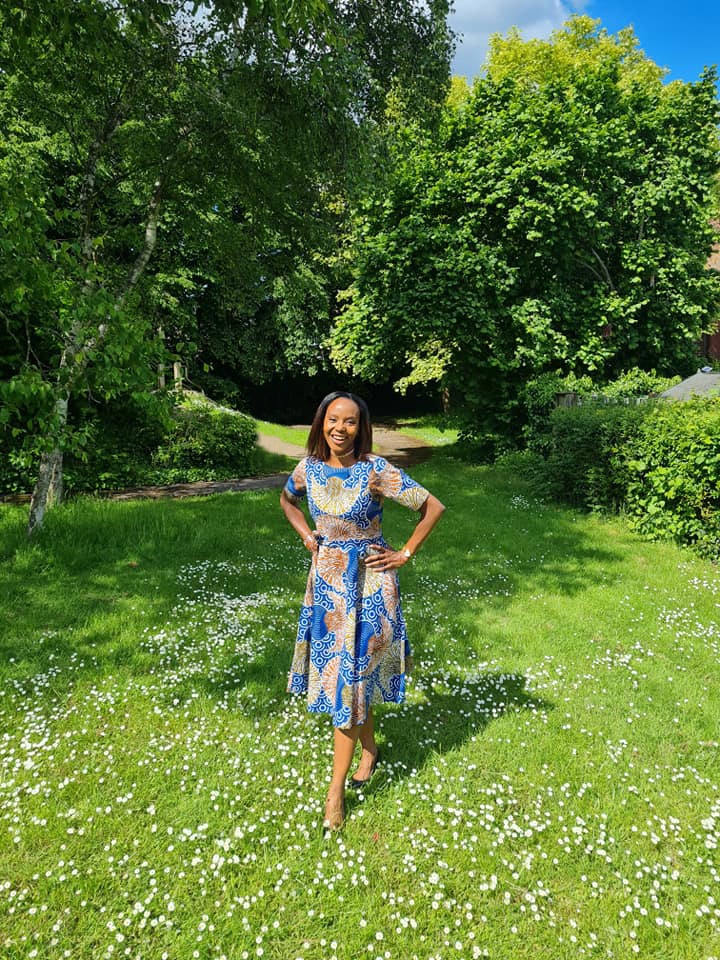
Dr Funke Abimbola MBE
 What challenges did you face as a working mum?
What challenges did you face as a working mum?
“I assumed that once I was in my job as a corporate lawyer, I’d just be able to carry on – which I was able to, for a period of time. But two years into the job, I got pregnant. (I was married, so it wasn’t exactly unusual.) After having my son, I took a year off for maternity leave, something that I was legally entitled to. But in the legal profession taking a year off – even for maternity leave – means that you’ve effectively lost a year’s post-qualification, valuable experience, pay reviews and things like that.
At the time, in my firm, I was the only black solicitor. Not just black female solicitor, but black solicitor – full stop. It wasn’t until I got back to work that I realised how strategic a female lawyer had to be about when to have children. I had my son in my late 20s but realised that the other women were waiting until they were promoted to partner before having their children, typically in their mid to late 30s and sometimes early 40s. I clearly didn’t get the memo.
It was incredibly isolating at the time and actually, it’s what eventually pushed me out of the central London law firm that I was working at. All I wanted was to continue working full time, but with regular hours. Even my suggestion of arriving at work at 8am, leaving at 5pm to pick up my son and working into the evening at home wasn’t workable because fundamentally, the system didn’t enable that. There was this very patriarchal assumption that the person doing the kind of corporate law work that I was doing was not also the principal caregiver with responsibilities at home.”“All of this came about because I saw a wider issue in society and I decided to do something about it.”
 Did you feel like you were the only one being discriminated against?
Did you feel like you were the only one being discriminated against?
“For a while, I was able to stay in that job. It took a lot of support: from my husband, and our families. A lot of women were driven out of the workplace at the point that I was at and this is part of what made me so angry. These firms were investing at least a quarter of a million pounds in training women to become solicitors and then just letting them walk out of the door.
We moved out of London and I started working within a regional firm in the Northern Home Counties. I then started to hear all about other forms of discrimination; discrimination based on accents, socio-economic background, sexual orientation and so on. I had colleagues who could not come out as gay because they were worried about how it would affect their careers – and on and on and on.
It made me realise that this wasn’t just about me. If it was just about me, I would have just got on with it. When I started hearing all about these other forms of discrimination, I would get so angry. The motherhood penalty attached to having a year’s maternity leave is what really kickstarted it all for me. The legal profession remains ‘male-shaped’ and until that changes, which it slowly is, these issues around diversity and inclusion will remain the same.”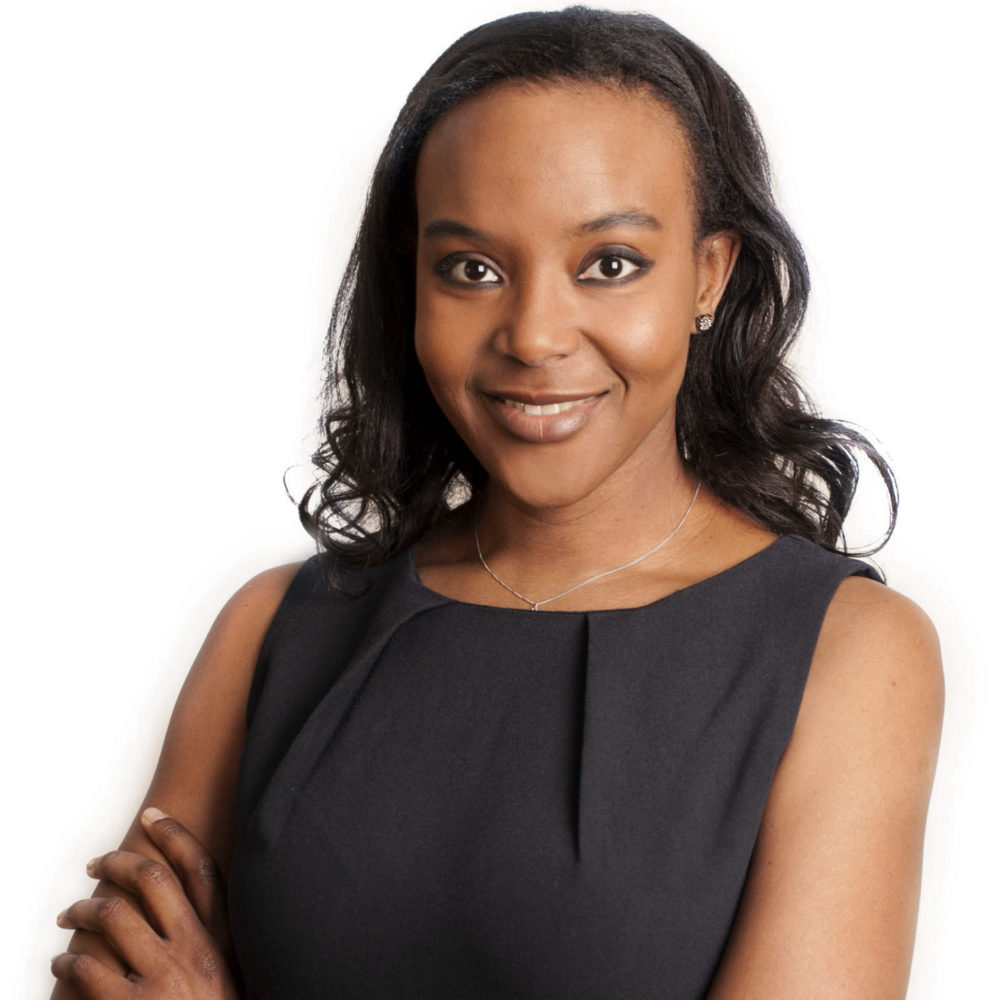
Dr Funke Abimbola MBE
 Are things getting better?
Are things getting better?
“When George Floyd was killed in May 2020, I received an onslaught of requests for help from my network. People realised that they needed help around race diversity and inclusion in particular.There was a realisation that this remains an incredibly challenging aspect of diversity and inclusion. There was such a high demand for me to provide my expertise in this area, and people were offering me so many amazing opportunities, that I actually decided to set up my business, the Austen Bronte Consultancy, and not return to legal practice.
I wanted to work with the companies that were serious about long-term change and not those companies who are all about just box-ticking. The companies and firms that are serious are implementing strategy, signing up to diversity commitments, holding themselves accountable to actually making change happen in the workplace. The companies within the ‘box-ticking’ category will do things like use their social media accounts purely as a PR exercise, making very bland statements about diversity and inclusion when, in fact, they are doing very little to move the dial.
We are all human; we all cry, we can all wake up in a bad mood, no matter our colour, accent, name. Everyone has the same fears and I just wish more of us accepted and embraced that human aspect of it.”
 How can we all make change happen?
How can we all make change happen?
“I firmly believe that if all of us, no matter who we are, committed to just doing one thing to drive positive change, the ripple effect of this would make a real difference in shifting the dial within the workplace and across society.
My hope is that everyone reading this can think about what they can do as an individual. It doesn’t have to be a big thing, but it’s the ripple effect of each of us taking action as individuals in society that makes big change.”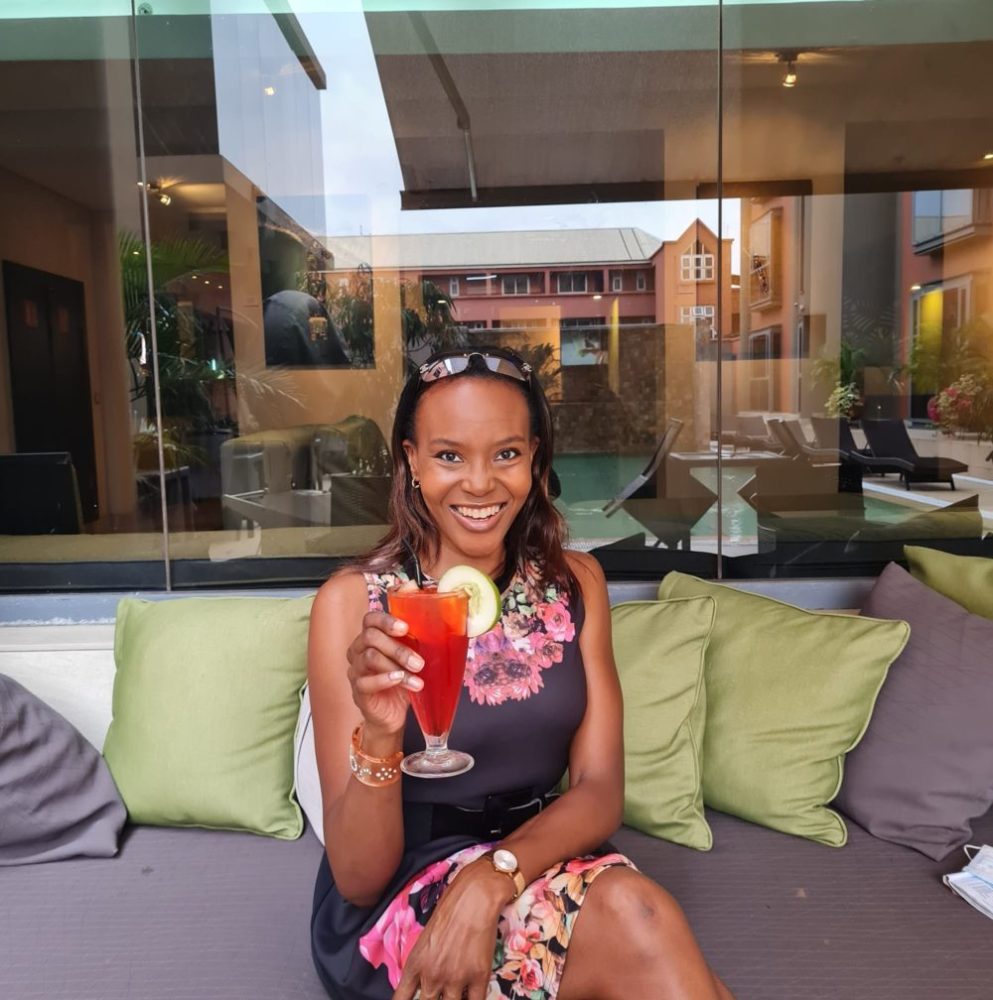
Dr Funke Abimbola MBE
 Is it good to get angry?
Is it good to get angry?
“If I’ve managed to do this from what just started off as me having a moan to colleagues at work, anyone can do it. All of this came about because I saw a wider issue in society and I decided to do something about it. My rage drove change. And I really believe that anyone can do the same.” What was it like to be made an MBE?
What was it like to be made an MBE?
“Receiving an MBE was the most surreal thing. When I received the letter, I genuinely thought it was a tax demand. I had to keep the news confidential and wait six weeks before the actual honours list was announced, so I couldn’t tell anyone during that time. Once the list was published – which was on my birthday – I was inundated with messages of congratulations. It was so overwhelming and it still is now. It’s been an experience that just never ends and has definitely led to more visibility for what I’m doing, elevating my work and giving it more credibility.” What is the one piece of advice you’d give her younger self.
What is the one piece of advice you’d give her younger self.
“This one is easy: do not care so much about what other people think. I have wasted a lot of time and energy obsessing over what people thought about me and ultimately, the older you get the more you realise you have no control over people’s opinions. Remember, what someone might think of you in the morning may change by the afternoon. People’s opinions are very fickle.”Thank you Dr Funke, for sharing your story with us.
Share this article…


